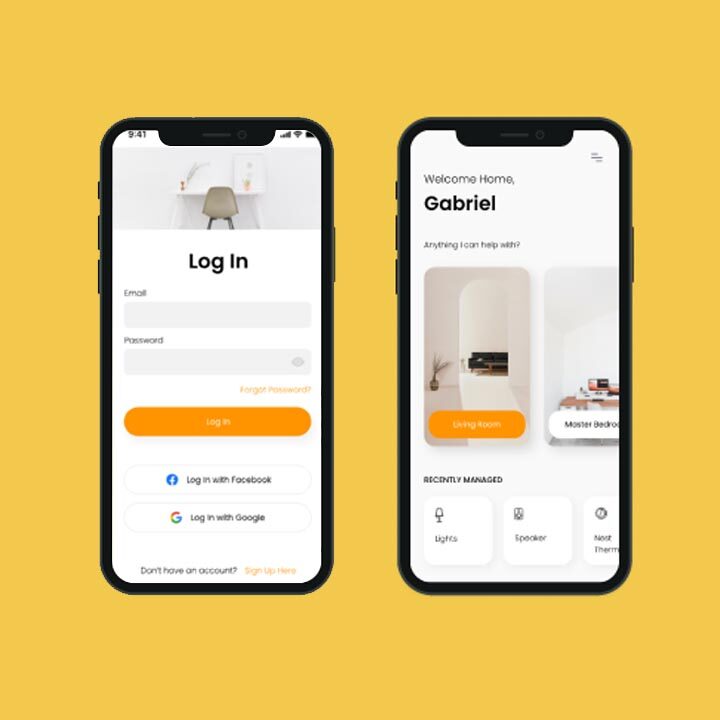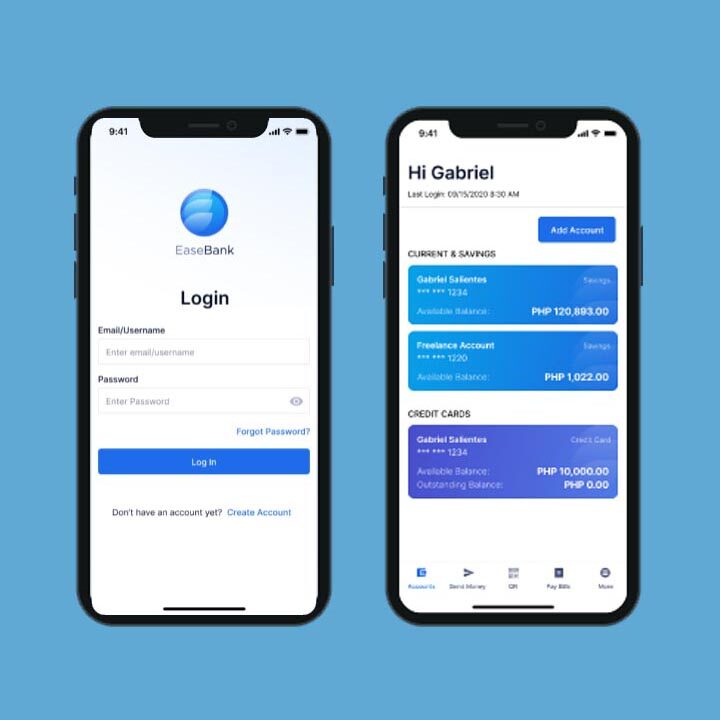Web development and web app development: What’s the difference?
Are you trying to decide between web development and web app development for your project? If so, you’re not alone. The two terms are often used interchangeably, but there are some important distinctions between them that you should be aware of. In this blog post, we’ll cover the differences between web app development and web development, and discuss the key things you need to know when making your decision.
What is Web Development?
Creating websites for the internet is known as web development, an occupation that encompasses a variety of tasks. It can range from developing a simple single static page of plain text to complex web-based applications, social network applications, and electronic business applications. Its main purpose is to create a website that is both accessible and functional across multiple platforms and devices.
The most common type of web development is known as front-end development. Front-end development involves creating HTML, CSS, and JavaScript code that defines the appearance and functionality of a website. This includes creating visual layouts, user interfaces, navigation menus, page content, and more.
Back-end development is another type of web development. This is the process of developing server-side applications or scripts, such as databases and application programming interfaces (APIs). This also includes integrating third-party services and APIs, such as payment gateways, analytics tools, and email services.
Responsive design is another important aspect of web development. Responsive design is the practice of creating web pages that automatically adjust themselves to fit the size of the device being used to view them. This ensures a consistent experience no matter what device is used.
Overall, web development encompasses a variety of tasks and techniques used to create and maintain websites. Examples include content management systems, online stores, blogs, forums, social networks, intranets, and more.
What is a Web App?
A web app, or web application, is a software program that runs on a remote server and is accessed via an internet browser. It is typically designed to provide interactive, user-friendly access to a range of services and functions.
Examples of web apps include social networking sites such as Facebook and Twitter, online banking, online shopping sites like Lazada, streaming media sites such as Netflix, and cloud storage services such as Dropbox. One of the most popular collections of web apps is Google Workspace (formerly G Suite: Google Docs, Google Sheets, etc.).
Web apps are created using programming languages such as HTML, JavaScript, and CSS. It offers users a variety of advantages over traditional desktop applications, including easy access from any device with an internet connection, less need for hardware resources (such as memory and processing power), faster deployment times, and the ability to scale quickly in response to increased demand. Furthermore, many web apps are free and require no installation.
In short, web apps provide a flexible, convenient, and cost-effective way for businesses and individuals to share information, collaborate, and offer services online.
What are the advantages and disadvantages of web applications?
| Category | Advantages | Disadvantages |
| Accessibility | 1. Accessible from any device 2. No platform-specific installation | 1. Requires stable internet connection 2. Limited offline 3. Instant updates for all user’s capabilities |
| Cost-Effectiveness | 1. Lower development costs compared to native applications 2. Reduced maintenance expenses 3. Easier to scale as user base grows | |
| Cross-Platform Compatibility | 1. Compatible with various operating systems and devices 2. Uniform user experience across platforms 3. Simplified development process | |
| Collaboration and Integration | 1. Facilitates real-time collaboration among users 2. Seamless integration with third-party tools and APIs 3. Simplified data sharing and management | |
| Security | 1. Vulnerable to hacking and cyberattacks2. Sensitive data may be at risk3. Users must be vigilant about security updates and best practices | |
| Performance Limitations | 1. May not be as fast as native applications2. Limited access to device-specific features and hardware3. May consume more system resources compared to native apps | |
| Browser Compatibility Issues | 1. Differences in browser functionality and rendering2. May require additional development work for full compatibility3. Some features may not work in older browsers |
Difference between web development and app development
Website development and web application development are two distinct activities. While website development encompasses the entire process of creating a website, web application development focuses on the specific pieces of software that make up a web app.
For website development, there are two main types of websites: static and dynamic. Static websites are composed of plain HTML pages with no additional features or content. These websites do not have any interactivity and they rely on their content being manually updated when necessary. On the other hand, dynamic websites are interactive and contain elements such as databases and scripts. This type of website allows for greater flexibility in design and content management, as well as the ability to add additional features and capabilities over time. Web apps are classified as dynamic websites.
On the other hand, web applications are interactive websites that can connect with users and provide an interactive experience. This can range from eCommerce sites to web-based tools for communication, collaboration, analytics, or customer service. It is the process of creating these applications so that they can be accessed by users through a web browser.
The main differences between web application development and website development can be summarized as follows:
| WEBSITE DEVELOPMENT | WEB APP DEVELOPMENT |
| Requires an understanding of HTML and design principles | Requires a deep understanding of programming languages and technologies |
| Involves creating static websites | Involves creating interactive and dynamic web applications |
| Involves creating layouts for displaying content | Involves building tools and features for users to interact with |
| Focuses on aesthetics and design | Focuses more on user experience |
Skills you need for website development and web app development
In web app development and web development, it’s important to have a set of skills that are tailored to each discipline.
For web app development, technical programming skills are a must. These include coding languages such as HTML, CSS, JavaScript, PHP, Python, Ruby, and more. Familiarity with frameworks such as React and Angular is also a plus. Other necessary skills include problem-solving, UX/UI design, database management, and cloud computing.
For web development, a basic understanding of HTML and CSS is required. Additional knowledge of JavaScript and frameworks like jQuery, Bootstrap, and React will come in handy. Additionally, web developers must possess an understanding of design principles, search engine optimization, usability, and accessibility.
Finally, web developers need to be familiar with web security measures such as SSL certificates and the Payment Card Industry (PCI) standards.
The Benefits of Web App Development and Website Development
Web application development and web development can offer different advantages for businesses, depending on their needs.
Web applications allow for a more interactive user experience, enabling users to interact with the app in a much more natural way, such as filling out forms, making selections, and providing feedback. This makes the user experience smoother, more engaging, and more user-friendly. Web applications can also be easier to maintain, update, and customize as needed.
On the other hand, web development is often the best choice when it comes to creating basic sites that don’t require a lot of user interaction. With web development, it’s possible to create fully functional websites without any coding knowledge. This makes it easier to get a website up and running quickly without having to worry about complicated coding requirements.
Additionally, web development is typically less expensive than web application development, so it can be a great solution for smaller budgets.
A fun fact: According to recent research by Stack Overflow, JavaScript is currently the most popular programming language used for web application development and web development.
Most Popular Web Apps in the Philippines

In terms of the most popular web apps in the Philippines, social media platforms top the list. Facebook, Twitter, YouTube, Instagram, and LinkedIn are the most used web apps in the country. Other popular apps include Google Maps, Skype, Amazon, and eBay.
Aside from social media apps, online games have also been gaining traction in the Philippines. Popular web-based games such as Roblox, Call of Duty, and PUBG are being played by thousands of Filipinos every day. Additionally, video streaming sites such as Netflix, Hulu, and Disney+ have seen tremendous growth over the past few years.
Finally, web-based business solutions apps like Jobstreet, Zoom, and Google Meet are widely used by Philippine companies. These apps allow businesses to manage tasks such as customer relationship management, employee productivity monitoring, and inventory control.
The popularity of web apps continues to grow in the Philippines, and they are expected to remain one of the country’s most important technological investments in the coming years. The accessibility and affordability of these apps make them an attractive option for Filipino businesses looking for a way to simplify their operations.
Mobile App or Web App – How Do You Choose?
When it comes to developing a web or mobile application for your business, understanding the key differences between the two is essential.
A web application is an interactive program accessed over the internet and run on a web browser, while a mobile app is a program specifically designed to be used on mobile devices such as smartphones and tablets.
There are several key differences between web apps and mobile apps that you should be aware of before making a decision on which platform to use. The most notable difference is that web applications typically require a constant connection to the internet, while mobile apps do not.
Another important difference is that web apps are built using HTML, CSS, and JavaScript, while mobile apps use native programming languages like Java, Objective-C, and Swift. Additionally, web apps can be used on any device with a web browser, while mobile apps are limited to specific platforms such as iOS or Android.
In terms of which option is best for a business in the Philippines, it ultimately depends on your specific needs and budget. For example, if you’re looking for a platform that is accessible from any device and requires minimal maintenance, then a web application might be the best choice.
On the other hand, if you’re looking for a platform that is tailored for specific devices and provides access to the hardware, then developing a mobile app may be the better option.
Ultimately, there is no “one-size-fits-all” solution; it all depends on your specific business needs.
Contact DigiGlobal Solutions for your web app or web design needs!







